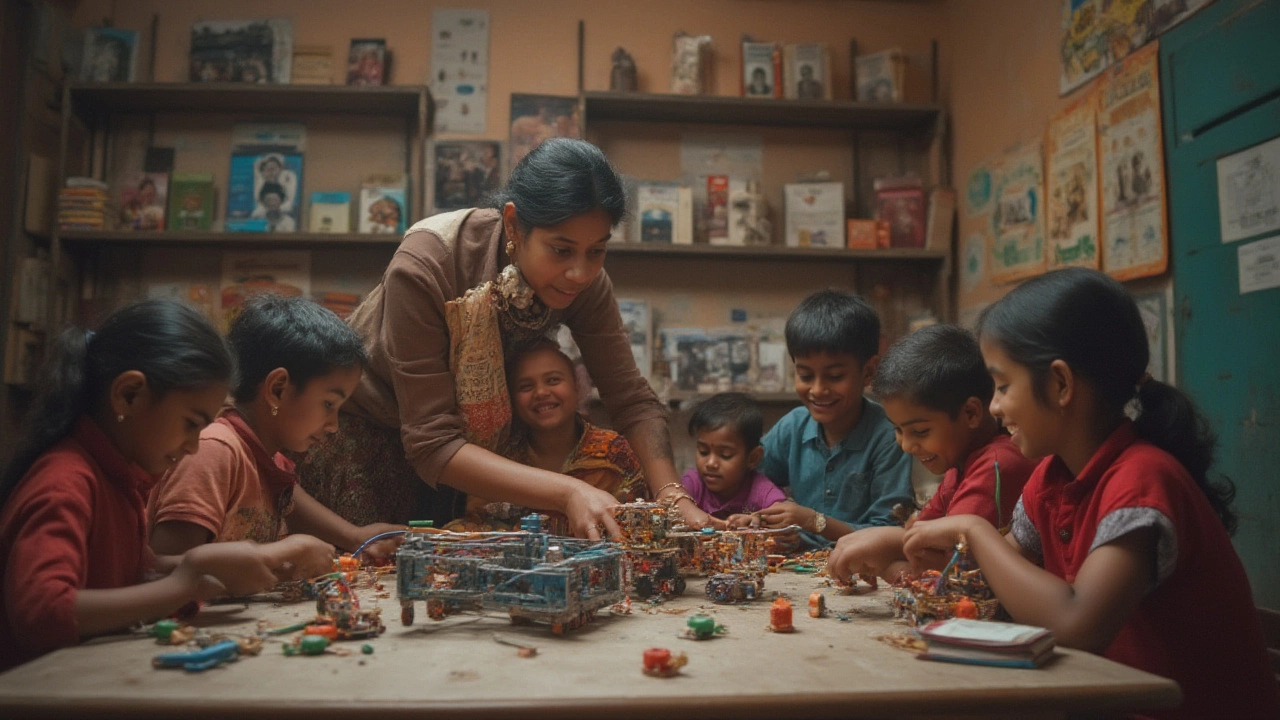Picture this: the final bell rings, and instead of heading straight home, kids scatter—some to drama club, others to football, and a few to the robotics workshop. It’s not just about filling up the hours after school; it’s about discovering passions, picking up skills, and making friends. The simplest answer is that an after school activity is called exactly that—an after school activity. But the label covers a wild variety of clubs, lessons, and experiences that can shape a child’s confidence and future.
Defining After School Activities: The Wide World of Choices
An after school activity is any organised experience that happens after the regular school day ends. Most of us just call them clubs, but they also go by the names of enrichment programs, extracurriculars, after school care, and even hobby groups. In the UK, the most common phrases you’ll hear are ‘after school club’ or ‘youth activity club.’ After school activity is an umbrella term, stretching across sports, arts, science, volunteering, and even homework help. While the concept might seem simple, the range really does matter—today’s kids can choose from chess tournaments, swimming teams, eco-awareness projects, crafting circles, coding bootcamps, and loads more.
Did you know youth clubs have been part of British life since the late 1800s? The Ragged Schools offered poor children safe, engaging activities after lessons over a century ago. Now, roughly 7 in 10 UK primary schools provide at least one after school club, according to a 2023 report from the Department for Education. This boom comes with good reason: working parents rely on these programs, and research links regular participation with higher academic success, better behaviour, and even improved self-esteem.
Popular Types of After School Activities and What They Offer
Let’s break down the classic after school options. Sports clubs are huge—think football teams, netball squads, tennis, gymnastics, and even martial arts. These aren’t just about burning off energy; they teach teamwork, dedication, and how to cope with losing gracefully. There’s also been a huge jump in STEM (science, technology, engineering, and maths) activities lately. In Bristol alone, it’s not unusual to find coding classes held at local libraries or schools, introducing kids as young as six to the basics of building apps and robots. Art and drama clubs fill a different need, letting children explore their creativity and boost their confidence in front of others.
You’ll also find language clubs, cooking courses, debate teams, and after school care clubs that combine homework help with games and snacks. Some schools offer mindfulness and yoga sessions to help kids manage anxiety. What’s often overlooked: volunteering clubs, where teens organise charity drives, litter picks, or help out at food banks. These foster empathy and help young people see their community from a more mature perspective. If you look at the stats, about 63% of students aged 7-15 in England took part in a regular after school activity in 2023.
Here’s a quick look at average participation:
| Activity Type | UK Participation Rate (2023) |
|---|---|
| Sports clubs | 45% |
| Arts/Drama clubs | 21% |
| STEM clubs | 13% |
| Homework/Enrichment | 10% |
| Volunteering clubs | 7% |

Why After School Activities Matter—for Kids and Families
If you’ve ever watched a shy kid light up while performing on stage or score their first goal after months of practice, you know these moments can be life-changing. After school activities give kids something school lessons sometimes can’t: the safe space to try, fail, try again, and discover what they truly love. Studies from Oxford University showed children regularly attending after school activities performed better not just academically, but emotionally, with fewer issues related to anxiety and behaviour.
That’s not all—they offer real help to busy parents. After school programs give children a supervised, structured environment until they’re ready to be picked up. This can make the difference between a family barely keeping up and one that’s thriving. Another bonus: strong friendships. Kids often connect more deeply with others in non-classroom settings, finding friends who share their interests. And let’s not forget the sense of belonging that comes from being known as “the chess kid” or “the drama queen.”
After school instructors—many of whom are volunteers or older students—get something out of it, too. They practise leadership, mentoring, and problem-solving skills. Some start by helping out and end up pursuing careers in teaching, youth work, or coaching. In this way, after school activities can ripple through a whole community, building up confidence and caring in unexpected places.
Tips for Finding the Right After School Activity
With so many choices, it’s easy to get overwhelmed. How do you pick one? Start by asking your child what actually excites them. If they’re into animals, maybe a science or nature club fits the bill. If they’re more social, drama or sports might spark their interest. Be patient with trial and error—sometimes it takes a failed attempt (or two) before something sticks. Don’t just hunt for prestige or skills; fun matters. Enrolment surveys in 2023 found that clubs with a relaxed, play-based approach kept more members than those chasing high performance from the start.
Here’s a simple checklist to help:
- Look at what’s available locally—schools, libraries, community centres, and online groups all offer different things.
- Check the cost. While many schools provide free options, specialist clubs or lessons (like coding or music) might charge fees. Sometimes local charities or councils offer subsidies for families who need them.
- Consider schedule clashes. You don’t want an activity that disrupts family dinners or clashes with homework time.
- Meet the club leaders. A warm, welcoming vibe makes all the difference, especially for nervous newcomers.
- Ask about trial sessions. Plenty of clubs let kids attend once or twice for free before you commit.
Above all, be flexible. It’s normal for interests to change as kids grow or their friends shift to other clubs. What matters is that they have the chance to try new things, fail safely, and discover what makes them tick.

Beyond School: Enrichment Clubs in the Wider Community
Not every after school activity is school-based. Lots of great options take place in local youth centres, churches, sports halls, or even online. In Bristol, organisations like Young Bristol and Bristol After School Club Network link kids up with everything from computer programming meetups to circus skills training. Many of these groups get creative with limited space and funding, using parks, rec centres, or borrowed classrooms to run their sessions.
Volunteering is a big winner here—younger teens can help with animal rescues, neighbourhood festivals, or environmental campaigns. These kinds of activities help build a work ethic and show kids how they can make a direct impact on the world around them. For isolated or shy kids, online clubs can bridge the gap, connecting them with peers who share their niche interests, like gaming, digital art, or eco-action.
The important thing is variety and accessibility. While some private clubs focus hard on results (think dance schools or sports academies), community-based groups usually put well-being and participation first. Spots do fill up fast—so early sign-up is key in places where after school demand is high.
If you’re not seeing what you’d hoped for, consider starting something yourself. Many successful programs began when a handful of parents or teachers asked local groups for support. Don’t underestimate the power of a simple art club or book swap to spark a love for learning that lasts a lifetime.
